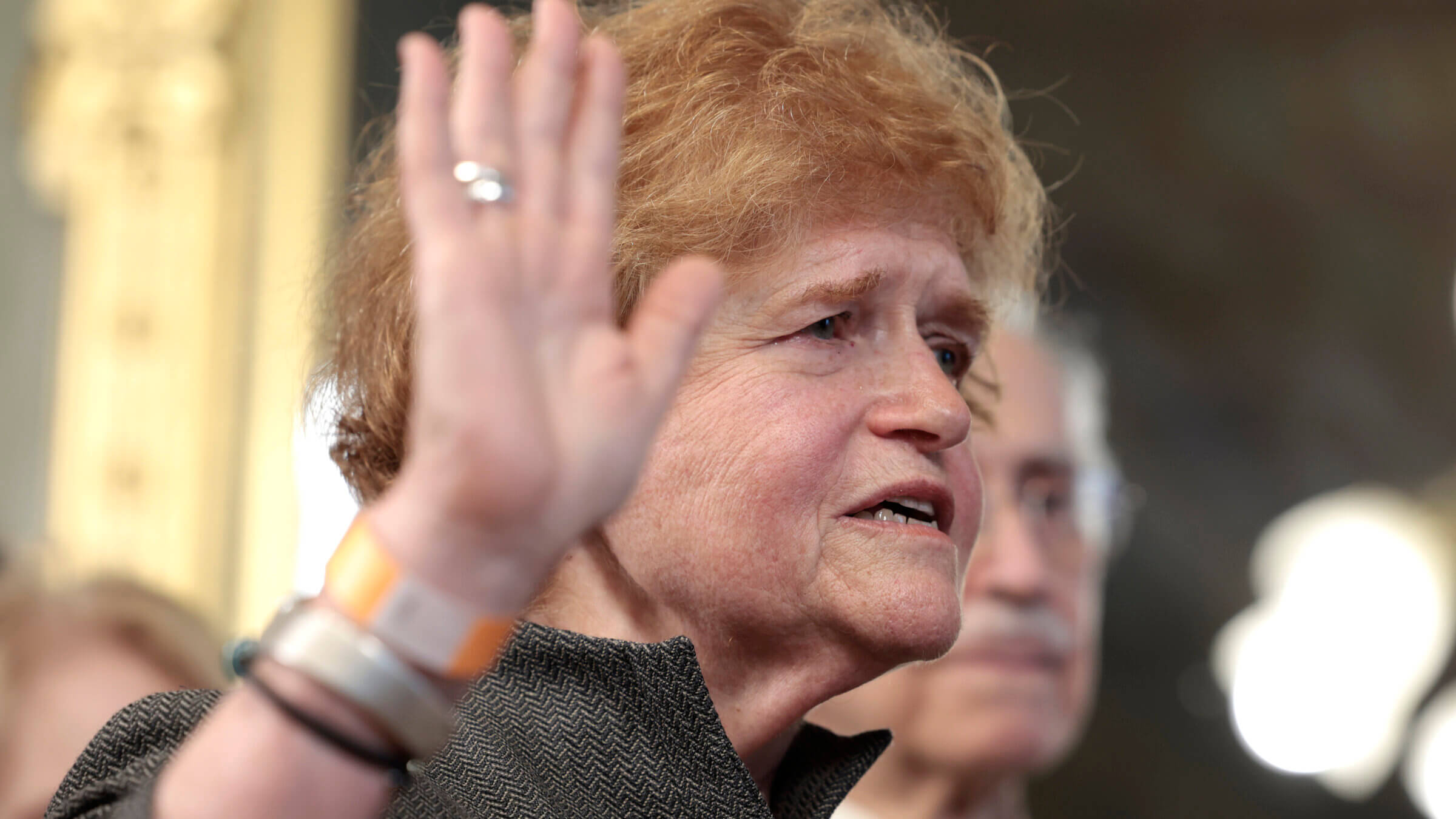Deborah Lipstadt, back from Saudi Arabia, says progress underway on combatting antisemitism in Gulf states
Lipstadt saw some positive signs in the region and believed her presence there would prove to be a net positive

Ambassador Deborah Lipstadt is sworn in by U.S. Vice President Kamala Harris to be Special Envoy to Combat Anti-Semitism. Photo by Anna Moneymaker/Getty Images
(JTA) – When Deborah Lipstadt recently met with a Saudi diplomat, she recalled, “He stood up and he said to me, ‘I come from a city where there were Jews.’”
That interaction in Saudi Arabia, a country that has been widely criticized for its human rights abuses, was a highlight of Lipstadt’s recent Middle East trip, her first tour as the U.S. State Department’s special envoy for antisemitism, which she recounted in a virtual briefing Monday. She characterized the interaction as cordial — but it also spoke to the costs of the sentiments that she has been charged with monitoring.
In the briefing, Lipstadt acknowledged that the kingdom was not “perfect according to our human rights standards,” but said that she believed her presence in “a place which had once been the source of so much Jew hatred, so much extremism,” would prove to be a net positive. In her meeting with Saudi Deputy Foreign Minister Waleed Al-Khuraiji, Lipstadt said, they discussed possibly mounting a future conference about “Judeo-Arabic” issues to explore the historic presence of Jews in the kingdom.
“If I can lessen that degree of animus [toward Jews], if I can make it so that that degree is not spread amongst others, I think I would have to,” she said. “I would be derelict not to do so.”
She cautioned that it would be wrong to conclude that the kingdom has fully reformed — that would be “drinking the Kool Aid,” she said. “The king of Saudi Arabia has sent imams abroad to various mosques, including in this country, who have preached antisemitism.”
But she saw some positive signs in the region, including in the fact that antisemitic material has recently been removed from Saudi textbooks.
Saudi Arabia, which backs the countries currently entered into the Abraham Accords, has lately hinted at a desire to normalize relations with Israel as part of a bulwark against Iran. President Joe Biden also recently visited the kingdom on his own Middle East trip, traveling there on a historic direct flight from Israel.
Though the Abraham Accords are seen as potentially having eliminated leverage for future progress in negotiations with Palestinians, Lipstadt said she hoped that her work in the region could help those talks by removing antisemitism from the equation in countries such as the United Arab Emirates.
“I hope that our ability to maybe diffuse the antisemitism piece and maybe infuse a different attitude, a conception of Jews and Jews within the Gulf region, will help this issue,” she said.
Lipstadt also shared that she offered a talk about the Torah portion at a Shabbat service in Dubai as part of a promotion of the Abraham Accords; met with Israeli Prime Minister Yair Lapid on his first full day in office; and subsequently traveled to Argentina for the anniversary of the deadly AMIA Jewish center bombing in Buenos Aires.
In Argentina, one big policy development emerged: 28 years after the deadliest attack on a Jewish institution since the Holocaust, the president committed to appointing a special envoy for antisemitism, the country’s own version of Lipstadt’s role.
This article originally appeared on JTA.org.















